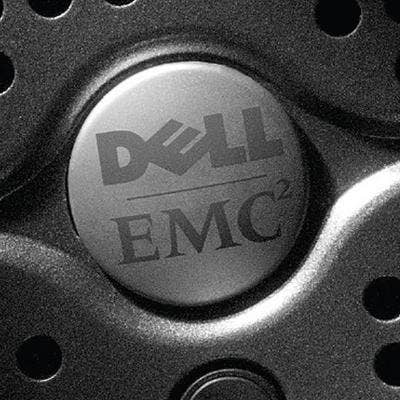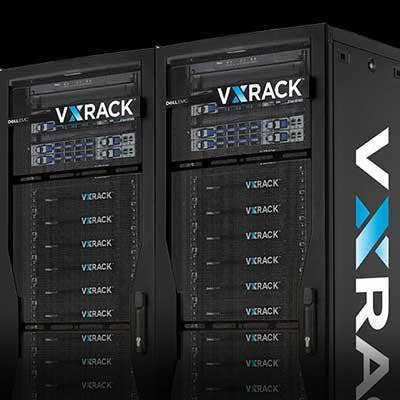Dell EMC Channel Chief Byrne On Ending 'Tension' With VMware Partners, Dell As A Distributor And Future ELA Plans

One-Stop Shop
Dell EMC Channel Chief John Byrne is cooling long-stewing channel conflict between Dell EMC and VMware and pulling the two vendors closer together with a new VMware enterprise licensing agreement [ELA] engagement strategy.
In an interview with CRN, Byrne stressed that the new arrangement between Dell EMC and VMware is a direct response to partner concerns.
The result is an agreement that allows Dell EMC Titanium and Titanium Black partners to procure VMware on Dell EMC paper while earning incentives from both companies' programs. In the past, solution providers weren't eligible for VMware incentives – and VMware reps didn't get paid – when VMware was pulled into Dell EMC hardware deals. Now partners will bank Dell EMC incentives, as well s VMware incentives while closing deals on a single purchase order and all the reps get paid.
Byrne also hinted that program ties between the two firms could be tightened in the coming year.
"Partners have asked us if we can get more aligned in your strategies, and that's what [VMware Channel Chief] Brandon [Sweeney] and myself are working on. We don't have it yet, but that's what you should be looking at for the next stage. You'll see more from us there next year."
What follows is an edited excerpt from CRN's conversation with Byrne.

What's your message to partners who have experienced conflict with Dell EMC and VMware?
Thank you. Thank you for being vocal. Thank you for being comfortable raising this. Thank you for telling us what you were looking for from us in terms of us being simple and predictable. They've been very vocal. They like choice. They want choice. They can see we have the largest portfolio on the planet this is the next part of our journey.

What were partners telling you? What roadblocks were they seeing?
We did have a little bit of channel conflict. We want to sell VMware. When it wasn't going down on Dell EMC paper, it was hard for our sales teams to get paid. It was creating tension with VMware partners. They would partner with us on storage, server, networking, PCs, you name it, and then they were also talking about VMware, and they weren't getting paid. They drew a line under that very quickly. It was how do I piece this all together? I've got to go here for one thing, here for another thing. I've got to put this on paper here, I've got to put that on paper there. They were saying, can't you make it easy for us? They see the Dell Technologies portfolio, and they want a single focal point. That came out very early, even back at Dell EMC World in October it was one of the big questions we had.

Does this point to even closer alignment of Dell EMC and VMware programs down the road?
Partners have asked us if we can get more aligned in our strategies, and that's what [new VMware Channel Chief] Brandon [Sweeney] and myself are working on. We don't have it yet, but that's what you should be looking at for the next stage. This is the ease of doing business part. You'll see more from us there next year.

How does this change partner engagement overall?
It's about keeping it simple. This is another part of making it really simple. We didn't rush to do it all around the world with all Tier 1 partners just because we've got to be thoughtful, considered, measured and then take it from there.

How is the new approach being organized?
Ultimately, Dell EMC is a distributor in this motion. This is a two-phase approach. For Titanium Black and Titanium partners in six countries – U.S., Canada, Mexico, Brazil, U.K. and France – they'll be the pilot to make sure everything goes well. They can buy from Dell EMC and ultimately they will continue to receive all of the VMware program benefits. That takes away the conflict.

What does it mean for Dell EMC and VMware sales reps?
It means that should you be a Dell EMC sales rep, you will also be rewarded for that selling motion. There was conflict before where the parties, sometimes three parties, were disputing whether it was the VMware partner on rebates or the VMware sales rep who may not be getting paid if it's on Dell EMC paper, or a Dell EMC person trying get it on somebody else paper. Now, our teams get paid and the partner gets paid from VMware.
What's the second phase of the plan?
In fiscal 2019, we will open it up to all countries where a partner buys directly from Dell EMC today. It will also be for Tier one [Titanium and Titanium Black]. In essence it will be opened up.

What has the reaction been from partners, and how have your distributors reacted?
We've spoken to the big partners, and they love it. We gave a very early heads-up to the big three distributors. They understood it. I wouldn't say they were ecstatic about it, but they understood it. They also know that we are continuing to consolidate our distributors and focusing on those big three, so there's a lot of upside and our distribution business is growing dramatically.

Is this for new solutions, or does it include license renewals?
In general, our registration program is for [Enterprise License Agreements]. The focus will be on ELAs, simply because we don't have all the tools and feeds ready yet to open it up to all the non-ELA business. The team is actively scoping that right now. It'll certainly be in place for our new fiscal year. For large, non-ELA opportunities for some partners, we can support it, it's just manual. We don't want to over-amplify, have everything come immediately and then the partners have a poor experience. We taking a thoughtful, phasing approach.
Will there be a big play here with VxRack and VxRail?
There will be.
Where is the budget coming from to do this?
It's IT, process, operations. We're funding that. Our partners want ease of business. They want one-stop-shop. We came into this with big ears and we want to do the right thing. This is one of those things that just makes sense.

Will this help drive both new account and renewal activity?
Yes. VMware is a really critical portion of Dell Technologies. It is a critical motion, and we're trying to be very consistent in terms of our offerings. Will this drive upside? No doubt. We want to be growing.